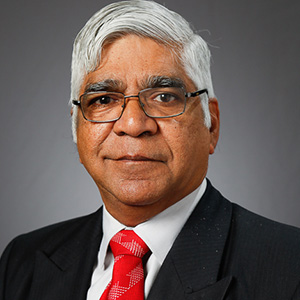Overview
Healthcare: Lessons from the pandemic & how to prepare for the future
Every adversity sows the seed of opportunity but whether it is leveraged depends on how the experiences are moulded to face the next challenge. Nowhere is this more relevant than in the healthcare sector, which is bang in the middle of the ongoing coronavirus pandemic.
While the spread of the virus has brought the global economy down to its knees, it has also reminded everyone that different spokes of the healthcare sector must work together. Be it diagnosis (read pathology), basic and emergency protection (read PPE kits and medical devices like ventilators) or treatment (drug research, medicines and hospitals), all the sub-segments of the industry need to function without disruption.
Not surprisingly, healthcare has stood out in attracting private investments. The first nine months of this year have already surpassed the $1-1.5 billion worth of private equity and venture capital money that the industry has been pulling in every year, according to data collated by VCCEdge.
If the current trends continue, the healthcare sector may also buck the broader trend where the number of companies attracting capital has declined, to at least match—if not improve—the tally of previous years where, on average, two healthcare firms were getting funded every week.
The pandemic has also shown the inadequacies of public and private healthcare delivery ecosystems. The diagnostics infrastructure took months to reach an optimal level to test infected patients. The hospital infrastructure faces a serious shortage of beds to cater to even those who are ready to pay a marked-up charge. Most critically, the process of drug and vaccine development is far from satisfactory. Some programmes that intersect in the public-private domain in India, like the government’s Ayushman Bharat health insurance scheme, have been moving in the right direction. The number of patients under the scheme has doubled in its second year and half a million people have reportedly availed its benefits for Covid-19 alone.
But we are running behind in creating a national health stack and a national health register to maintain digitised records of citizens. Once in motion it could complement the decades-old, low-cost healthcare delivery systems like telemedicine, which got a leg-up in the last few months, for more effective and faster impact.
Overall, the pandemic has proven that both public and private institutions must invest more in the healthcare industry, and effectively use technology to face such a shock in the future. It has also shown the need for swifter business decisions with respect to product planning (devices); development of low-cost diagnostics processes; efficient hospital infrastructure utilisation without usurious charges that feed distrust; and more research for drug and vaccine development to tackle newer strains of viral and bacterial diseases.
To discuss the experiences of various stakeholders and learn the lessons to face challenges of the future, VCCircle is organising the 12th edition of the Healthcare Investment Summit on December 11, 2020 on a virtual platform.
Agenda
-
9:00 AM – 9:30 AM
Registration
-
9:30 AM – 9:40 AM
Opening Address
By Jaideep Mehta, CEO, Mosaic Digital
-
9:40 AM – 9:45 AM
Welcome Address
By Satish Chander, Partner, True North
-
9:45 AM – 10:05 AM
Keynote Address: Lessons on public private partnership in dealing with pandemic
Sudarshan Jain, Secretary General, Indian Pharmaceutical Alliance
-
10:05 AM – 10:35 AM
Panel Discussion 1: Learnings from systemic shock
Pathology chains, hospitals, medical device makers, health insurers and drugmakers, especially vaccine developers, and drug research firms faced numerous challenges. And they continue to feel the stress over the public demand for a swifter and more effective response to the pandemic. What lessons can help handle such a situation in the future?
Speakers:
Anish Bafna, CEO and MD, Healthium Medtech
Pavan Choudary, Chairman and Director General, Medical Technology Association of India
Mayank Bathwal, CEO, Aditya Birla Health Insurance
Anand K, CEO, SRL Diagnostics
Moderator: Ranjani Raghavan, Associate Editor, VCCircle
-
10:35 AM – 10:45 AM
QnA Session
-
10:45 AM – 11:00 AM
Fireside Chat: Healthcare through the investor lens 2020/21
Shalil Gupta, CBO, Mosaic Digital in conversation with Satish Chander, Partner, True North
-
11:00 AM – 11:30 AM
Panel Discussion 2: Hospitals go omni-channel; need to tap into home healthcare, telemedicine?
Hospitals faced an unprecedented decline in occupancy levels as non-Covid patients postponed treatment. They also faced a Catch-22 situation as demand for telemedicine, which was traditionally seen as a means to reach the underserved population in the hinterland, spiked and they faced a pricing problem in the cities.
Can hospitals manage demand for beds with more telemedicine while keeping pricing at a level that’s acceptable to patients and enough to manage their own infrastructure? Can home healthcare tie-ups form the middle ground?Speakers:
Vivek Srivastava, Co-founder & CEO, HealthCare atHOME India
Dr. K Ganapathy, Director, Apollo Telemedicine Networking Foundation
Raviganesh Venkataraman, CEO, Cloudnine Group of Hospitals
Moderator: Joseph Rai, Special Correspondent, VCCircle
-
11:30 AM – 11:40 AM
QnA Session
-
11:40 AM – 12:10 PM
Panel Discussion 3: Drug discovery and development
Companies have tried to repurpose older drugs to treat COVID-19, even as the search for a vaccine continues globally. India is likely to also emerge as the manufacturing hub for the COVID-19 vaccine. Can the pandemic give a boost to innovative drug discovery research in India? How can the government and the drug regulator step in to monitor safe scientific research and for clinical trials while also fostering an environment for innovation?
Speakers:
Rahulkumar Darda, Chairman and Managing Director, Brinton Pharmaceuticals
Dr. Arun Anand, COO, Immuneel Therapeutics
Moderator: Ranjani Raghavan, Associate Editor, VCCircle
-
12:10 PM – 12:20 PM
QnA Session
-
12:20 PM – 12:50 PM
Panel Discussion 4: Health-tech arrives and how
The two most heavily funded sub-segments of the health-tech space – e-pharmacy and online doctor consultation – got a huge fillip during the lockdown. The pandemic has also revived the interest of early-stage investors in health-tech. While consolidation is afoot in e-pharmacy, other health-tech segments need to see if the spike in monetisation and run rate can be sustained. Will this be the beginning of Health-tech 2.0 in India?
Speakers:
Vivek Tiwari, CEO, Medikabazaar
Tarun Sharma, MD, MegaDelta Capital
Satish Kannan, Co-founder & CEO, MediBuddy-DocsApp
Moderator: Narinder Kapur, Correspondent, VCCircle
-
12:50 PM – 1:00 PM
QnA Session
-
1:00 PM – Onwards
End of Conference
Speakers 2020
Sudarshan Jain
Secretary General, Indian Pharmaceutical AllianceSatish Chander
Partner, True NorthPavan Choudary
Chairman and Director General, Medical Technology Association of IndiaDr. K Ganapathy
Director, Apollo Telemedicine Networking FoundationVivek Tiwari
CEO, MedikabazaarVivek Srivastava
Co-founder & CEO, HealthCare atHOME IndiaMayank Bathwal
CEO, Aditya Birla Health InsuranceAnish Bafna
CEO and MD, Healthium MedtechRahulkumar Darda
Chairman and Managing Director, Brinton PharmaceuticalsAnand K
CEO, SRL DiagnosticsRaviganesh Venkataraman
CEO, Cloudnine Group of HospitalsDr. Arun Anand
COO, Immuneel TherapeuticsTarun Sharma
MD, MegaDelta CapitalSatish Kannan
Co-founder & CEO, MediBuddy-DocsAppRewind
Do you have any queries?
Drop us a line and we will call you.






















